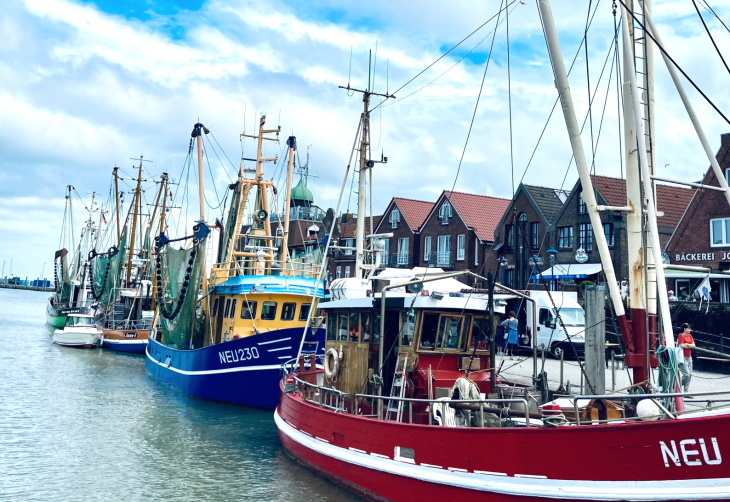Project CRISP-Shrimp

Cutter in a North Sea harbour | image: Miss Wonnabanana auf Unsplash
Background
The project focusses on the urgent need to support the transformation of the German North Sea inshore (coastal) fishery, which has become increasingly fragile due to its near-total dependence on brown shrimp (Crangon crangon). Once a diverse and resilient sector, the fishery now faces mounting ecological, economic, and social pressures threatening the livelihoods of fishers and the cultural fabric of coastal communities. Coastal communities are increasingly required to be more sustainable. The coastal fishery must form part of that transformation to sustainability, as it is facing both direct and indirect climate change impacts and is increasingly at odds with other coastal priorities - such as offshore wind development and marine conservation.
Governance structures at the EU, national, and local levels are ill-equipped to respond to the complex, non-linear challenges posed to the fishery and coastal communities by climate change.
The project aims to reimagine the future of this fishery by developing a governance model that is adaptive, inclusive, and regionally grounded. It seeks to empower fishers, administrators, and scientists to co-create a vision for a climate-resilient fishery that supports both ecological sustainability and community well-being. A vision in which fishers are not just resource users but active stewards of their environment and culture. The project facilitates the co-development of adaptation scenarios through stakeholder workshops that reflect ecological realities, community needs, and governance constraints.
Aims & Objectives
- To support the transformation of the German North Sea inshore fishery into a climate-resilient, socially sustainable, and economically diversified sector by identifying structural and conceptual limitations in the current fisheries governance system and explore how it can be adapted to support resilience.
- Provide governance recommendations and implementation roadmaps that can inform regional and national fisheries policy.
- To empower local stakeholders—fishers, administrators, and ecologists—to co-create viable adaptation pathways.
- To preserve the cultural heritage and economic viability of coastal fishing communities under changing environmental conditions.
Project Staff
Principal Investigators
Prof. Dr. Christian Möllmann, Institute of Marine Ecosystem and Fishery Science, Universität Hamburg
Dr. Louis Celliers, Climate Service Center Germany (GERICS)
Researcher
Paul Müller

